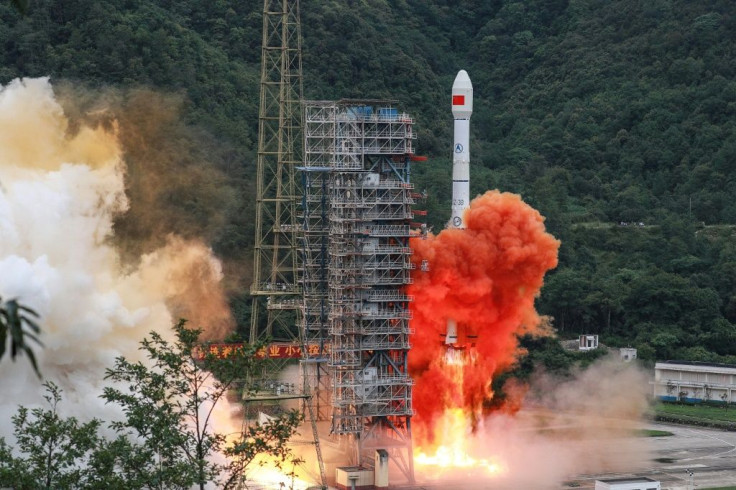US Space Command Tracking Chinese Rocket's 'Uncontrolled' Reentry; Here's When It Could Happen
KEY POINTS
- U.S. Space Command confirmed that it is tracking the rocket set to make an uncontrolled reentry
- The agency gave an estimate as to when the reentry could occur
- Where exactly it could end up remains unknown
China successfully launched the first module of its own space station, but it soon sparked concerns over the "uncontrolled" reentry of the rocket that launched it. U.S. authorities confirmed Tuesday that they are tracking the space debris and gave an estimate on when it would likely reenter the Earth's atmosphere.
After China's successful mission last week, word soon spread that the core stage of the Long March 5B rocket that launched the Tianhe module did not come back down at a designated spot and would likely make an uncontrolled reentry in the days to come.
The Department of Defense's U.S. Space Command confirmed in a statement that it is tracking the rocket.
"U.S. Space Command is aware of and tracking the location of the Chinese Long March 5B in space, but its exact entry point into the Earth's atmosphere cannot be pinpointed until within hours of its reentry, which is expected around May 8," the statement reads. "Until then, the 18th Space Control Squadron will be offering daily updates to the rocket body's location on Space-track.org beginning May 4. USSPACECOM will provide additional information as it becomes available."
Other predictions are also quite similar, with the Aerospace Corporation predicting a reentry on May 9 at 12:37 a.m. ET with a plus or minus 28-hour margin of error, Space News reported. Russian experts also predicted a possible reentry sometime between May 7-9, the outlet noted.
Astronomer Jonathan McDowell from Harvard University's Astrophysics Center also commented on the matter, telling CNN that it could reenter "some time between the eighth and 10th of May." However, where exactly it would land would be difficult to determine because the rocket is moving so fast. As such, even a small change could mean a difference in where it would end up.
"And so you should not believe anyone who tells you, 'Oh yeah, I've heard it's coming down in this particular place,' Don't believe them at least a few hours before the reentry because we're just not going to know in advance," McDowell told the outlet, adding that it's most likely to fall in the Pacific Ocean as it covers much of the Earth.
On the possible threat posed by the "out-of-control" rocket reentry, McDowell said that it is "not the end of days," adding that "there are much bigger things to worry about."

© Copyright IBTimes 2025. All rights reserved.






















